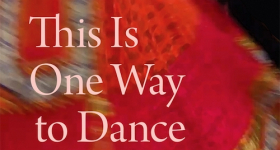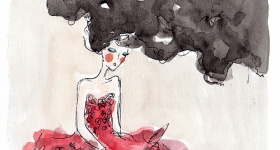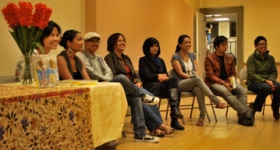Anyone who has ever felt alone and adrift in a writing workshop: Matthew Salesses sees you. In Craft in the Real World: Rethinking Fiction Writing and Workshopping, Salesses tackles the complex mission of redefining how craft exists in a world inhabited by people of different races, classes, sexual orientations, as well as within cultures outside of white Western culture. “When craft is taught unreflexively, within a limited understanding of the canon, it reinforces narrow ideas about whose stories are important and what makes a story beautiful, moving or good,” says Salesses. The book aims to not only highlight how definitions of craft and traditional workshops have failed writers, but it also serves as a blueprint for how we might start changing things.
This interview has been edited for length and clarity.
Willa Zhang: I was nervous to talk to you about craft initially because craft sometimes feels like such a nebulous idea and an uncomfortable topic for discussion. Why do you think that is and how do you see your book working to change that?
Matthew Salesses: One of my pet peeves is the person who talks about craft like, “You know, you just feel it out! You sit in the chair and just do it.” The book tries to lay bare what craft actually is as a set of expectations and where those expectations come from. And how we gather those expectations from reading other books and learning to tell stories from school.
My daughter is doing these worksheets that are like, put the beginning here, put the conflict here. I’d forgotten that I must’ve done these as a kid — they’re so cut and paste. They give you just one kind of story. I’m trying to work against these very strict ways of telling stories but also trying to reveal the rules that are there, the rules that we try to hide. And just trying to make clear that there are other ways of telling stories.
In the book, I use Asian American literature as an example but I think many different people can use it as a blueprint to find their ways into other traditions and cultures and gain more ownership over the stories they’re telling.
WZ: You talk a lot in the book about how craft is a reflection of culture — the hidden ways we talk about craft can often mirror the hidden ways we make culture.
MS: Yea, it’s like the politics of hiding the politics. I think the workshop has been invested in that for a long time. One example I talk about in the book is from Workshops of Empire by Eric Bennett. He talks pretty extensively about how a pretty explicit goal of Paul Engle’s workshops [at the Iowa Writers’ Workshop] during the Cold War was to create an ideological weapon against Communism.
Sometimes, we’re so surrounded by things that we’re not even aware of how persuasive they are. When we’re telling stories to each other, we’re drawing on other stories. When we’re watching films, we’re seeing which characters get bigger roles or more time on camera. All these things take subconscious effect on us and help us think that certain people deserve more speaking time. Whether these forces acting on us are purposeful or not, they can still be malicious and influential.
WZ: That’s really interesting because I feel like a big part of the project of this book is trying to make what’s subconscious about craft conscious.
MS: Yeah, that’s definitely the aim. From the point of view of a writer and person in life, all these cultural influences become so subconscious and influence us without us realizing it. And as we begin to reveal what these forces are and work on having better conscious impulses, we’re hopefully getting better as writers and people.
When you write that first draft, it’s often all pretty much unconscious. Even the things you’re doing craft-wise are things that you’ve internalized. And then as you’re going through revision, you’re trying to make everything more and more conscious. What was I even writing about here? What is this story actually even about? It takes me hundreds of drafts to even figure out what I was trying to do in the first place.
To make writing conscious is similar to living your life. Your identity at first is mostly other people telling you who you are, but then you’re trying to take control over that and make a conscious effort at being the person you want to be.
WZ: You make it sound like writing as a process of self-interrogation, or even therapy?
MS: Totally! Or revision is, at least. Therapy is very story-based, right? It’s how you tell yourself the story of who you are and how can you break things down so you can tell a better story of who you are.
WZ: One of the main points in the book is about being conscious about your audience when you write. Who did you write this book for, and who do you see it reaching?
MS: There are a couple of different levels of audience. The first reader I always have in mind is an Asian American friend of mine, Kirstin Chen. She was born and raised in Singapore, so she has different cultural reference points than me. We have a lot in common as Asian Americans but we also have a lot not in common — gender, where we live. She lives in San Francisco amongst the Asians. I live in Iowa, where it’s really white. Writing towards her gives me a distance from myself where I have to make sure things are clear for somebody else, but I’m also speaking to somebody who gets me and understands my context. And then I extend that to Asian American writers, especially those who teach writing.
WZ: Where did your ideas about how to improve workshop and redefine craft come from? Your experience as a student? As a teacher?
MS: When I was a student, maybe it’s just my personality, but I would put up with a lot. One goal of workshop back then was always to just get through it unscathed. But when I became a teacher, I felt that certain elements of the workshop were a big problem for me. It’s not until you have to apply the pedagogy yourself that you begin to realize some of the harm. Most of the book came from this feeling of “none of this is working, I have to get rid of all this and do something else.”
WZ: Can we salvage the writing workshop in the process?
MS: I think we can totally salvage the workshop, it’s just that it’s built on the wrong foundation. Here’s what I think — the workshop has a couple things really going for it. But the foundation of the traditional workshop is made to destroy the things that can be useful. Those things are being able to talk about the author’s process and seeing the pages as works in progress.
In traditional workshops, we’ll often cut the author off completely. Silence them and you get rid of one of the main advantages. And the traditional model where everyone goes around the room and criticizes the piece is not using the workshop to any of its potential.
Part of the problem is that at the time of the workshop’s inception, they just didn’t have the diversity of experience and literary beliefs that we have now. These things are huge advantages for the workshops, but only if it’s clear that people are speaking from different places and to specific audiences.
I still believe in the model, although I don’t think it’s the only one. I see the book as a starting point for how we can build much more conscious tools.
WZ: I see that in how a big part of the book is definitions — as in, if we’re going to move forward, we have to have a shared language.
MS: Right. For example, plot is often taught with the main elements of character, agency and cause and effect. But what about fate as a driving plot force? For a large part of our history and still in other parts of the world, fate is a huge part of plot. I was trying to think of definitions that can hold more while still creating common ground in what we’re actually calling plot in the first place.
WZ: That makes me think of the Julio Cortázar piece you bring up in the book, “The Island at Noon,” which hinges on a twist rather than conflict. When I read it, I immediately thought, yeah, that’s a different definition of plot for sure! And if you put this in front of a group in a workshop, people might say, but where was the conflict?
MS: What’s funny too is that if you just ask people to read that story, they’ll read it and love it. As soon as you say, “Well let’s talk about what’s not working,” people begin to say, “Here’s what’s not working.” It’s truly just because the story doesn’t fit into a certain way they’ve been taught to think about stories. It’s not that things in the story aren’t working, it’s that their comments wouldn’t even be applicable in the first place.
WZ: After you implemented some of these changes to the workshops you teach, what difference have you seen in your students and their work?
MS: Mostly what I see is more enthusiasm and less dread for workshop. I have a lot of students saying, “that was not nearly as bad as I thought it was going to be, I thought I was going to go in there and be attacked.” People already have a cultural expectation of the workshop as something that hates you and you hate as a rite of passage.
But it can be much more helpful to have people leave the workshop feeling like, “Yes, I’m going to go right back to the page. I have all these new ideas and it’s so exciting!” That’s the biggest change.
I teach at a mostly white institution, and I still have a lot of students who are choosing to go with a more traditional, white, Western idea of narrative. But they’re now thinking more consciously about the choices of plot and characterization they’re making. They’re asking themselves what these choices mean and who they’re writing for. Those questions at least are in the back of their heads as they go forward.
WZ: And hopefully because they realize their style is a deliberate choice, they can see how another writer in the class is also making a deliberate choice, even if they’re writing in a completely different style. It’s a choice, not a mistake.
MS: Right, I think workshops go a lot better this way. There are so many writers who feel like outsiders and turn to writing because it offers them a way to take control of their story. If that’s the starting point for a lot of writers, then entering a workshop where they’re silenced and their voice is taken from them is so defeating. It should be a place that’s empowering and supports their motivation to be a writer in the first place.
For the process of editing and revision, I always think of a valley. You have this beautiful idea in your head, and it’s artistic and wonderful. As soon as you start putting it down on paper, you start slipping down into the valley. You can’t bring that abstract, beautiful idea into words perfectly. Then you’re thinking about all the rules you’ve heard as a writer. As you’re revising, at first, it just seems like you’re making it worse and worse and it gets scary and hard. Your writing is not what you want it to be and you’re sinking into the valley. At some point though, maybe it’s that you’ve figured out what the story is about, or you’ve internalized all the different elements, but you start to find your way out. You come out the other side and it’s not the same story you started with, but it’s something that is your own again and that you can move forward with.
And a lot of life is like that. I also teach Asian American studies, and I often have students who are stepping into that valley for the first time. It’s so overwhelming and scary for them. I’ve had a couple students say directly to me, “I don’t want to learn this stuff because it’s making my life harder.” And I’m sitting there like, oh man, I’m sorry, I know this is really hard. But this is kind of what I’m hoping for as a teacher — that you become more conscious of the world and you make conscious decisions. You have to get through the overwhelming stuff before you can make the decisions that are right for you.










Comments